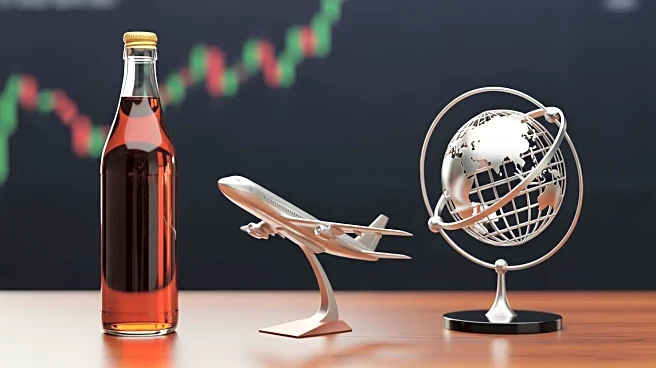Rapid Read • 9 min read
President Trump has announced new tariffs following a disappointing jobs report that showed a significant slowdown in job growth. According to the Labor Department, U.S. employers added only 73,000 jobs last month, a figure much lower than economists had projected. Revised figures for May and June also indicated that previous job growth estimates were overly optimistic. This news has unsettled investors, leading to a 542-point drop in the Dow Jones Industrial Average. The tariffs, which include a 35% levy on goods from Canada and up to 50% on goods from Brazil, are set to take effect next week. These measures are part of President Trump's broader strategy to boost revenue and manufacturing, although they have been criticized for potentially increasing prices and slowing economic growth.
AD
The introduction of new tariffs by President Trump is significant as it could have wide-ranging effects on the U.S. economy. The tariffs are intended to bolster domestic manufacturing and revenue, but they may also lead to higher consumer prices and further strain international trade relations. The job market's weakness, coupled with rising tariffs, could pressure the Federal Reserve to reconsider its interest rate policies. Additionally, the tariffs have already contributed to inflationary pressures, complicating the economic landscape. Public opinion on the tariffs is largely negative, with President Trump's economic approval ratings declining. The tariffs' impact on industries reliant on international trade, such as manufacturing and retail, could be substantial, affecting both businesses and consumers.
The new tariffs are scheduled to take effect next week, but there is potential for changes before implementation. President Trump frequently adjusts tariff policies, and further negotiations or deals could alter the current plans. The Federal Reserve may face increased pressure to cut interest rates if economic conditions continue to deteriorate. Businesses and consumers will be closely monitoring the situation, as the tariffs could lead to higher costs for imported goods. The administration's approach to immigration, which affects labor availability in certain sectors, may also influence economic outcomes. Stakeholders in affected industries are likely to advocate for policy adjustments to mitigate negative impacts.
The tariffs highlight a broader debate about the use of trade policy as a tool for economic leverage. While intended to protect domestic industries, tariffs can disrupt global supply chains and lead to retaliatory measures from trading partners. The administration's focus on tariffs as a primary economic strategy raises questions about the long-term sustainability of such an approach. Additionally, the politicization of economic data, as seen in President Trump's criticism of the Labor Department, could undermine public trust in government institutions and economic indicators.
AD
More Stories You Might Enjoy











